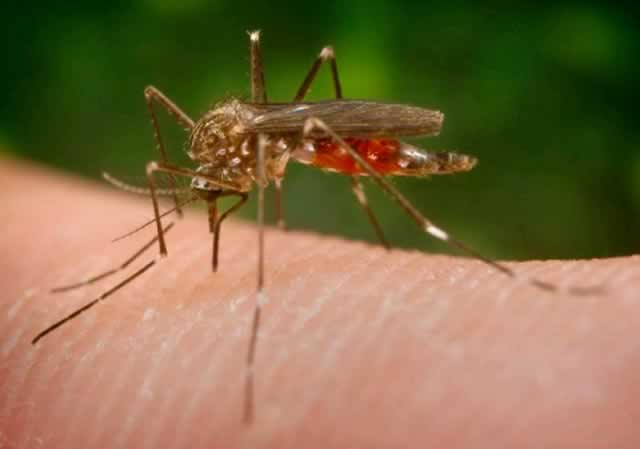Should we beat children when they misbehave?
Dr Sekai Nzenza On Wednesday
WE got beaten up at the village school. At home, we were occasionally beaten up for stealing, lying, using swear words or showing disrespect to adults. But in some villages, children were always beaten up even for very small offences or for no offence at all. Sometimes I look back at the pain that was inflicted upon us as children so we could grow up to be better people and wonder if all that beating worked.
Being beaten at school was normal.
We got beaten for going to school late, having uncombed hair, dirty nails, unclean teeth, torn uniforms, failing to get all the mathematics right, bad handwriting, making noise in class, singing out of tune and losing a school match against a rival school.
Our headmaster, Mr Zitaguru, was a champion pupil beater.
He took pride in wielding the stick, the ruler on your bottom or hitting hard on the skinny calves of your legs.
Sometimes half the school was sent away to the bush to clean teeth with a muchakata tree, to comb hair with a thorn tree branch and to file nails against a rough stone.
For those children with very bad nails or long hair, bush instruments did not help much to clean nails or cut hair.
These children had to go home.
But rather than go back straight home to clean themselves up, they spent the rest of the day playing in the forests, looking for wild fruits and swimming in the river.
Some of them never came back to school. Their parents said, what is the use of education if it causes you to be beaten so much?
Students at St Columbus School had black scar marks on their calves from Headmaster Zitaguru’s stick.
In his office, he kept a thick wooden stick nicely polished and stripped of its bark then warmed against the fire to make it harder.
It was about a metre long so he did not have to bend down too much to beat our thin legs.
He lined those who reported late for school in front of the school assembly and hit each one of them in turn.
Five strokes for Grade Ones and 10 to 15 for older kids.
Headmaster Zitaguru was particularly harsh on prefects and senior boys.
Prefects got as much as 20 strokes because they were meant to lead by example.
In our class, there was a girl called Enifa Tambe.
This girl was always at the top of the class in everything.
She never got her arithmetic wrong and she remembered a lot in the history lessons. She could recite everything about Cecil John Rhodes, the founder of Rhodesia (before it became Zimbabwe), the names of ministers in Ian Smith’s government and the important dates in Rhodesian history.
Enifa’s village was in Manhika further down the Save River.
She had to trek up and down three hills and cross two rivers to get to school.
In the cold months when the sun came out late, Enifa left her village when it was still dark.
Enifa was brave. She loved school. But she was often late for school and whenever that happened, Headmaster Zitaguru beat her up.
Sometimes Enifa could not sit properly because her bottom was very sore from the regular thrashings.
Then during the winter of our Grade Seven year, Enifa was late for school for the third time in one week.
Headmaster Zitaguru could not contain his anger. I remember his eyes being unusually red on that day.
He ordered the head boy to get a whip from under his desk. The whip rarely came out except for serious third time offences.
Headmaster Zitaguru ordered Enifa to stand in front facing the whole assembly.
Then he moved a short distance from her and raised his whip. Enifa took one quick look at all of us.
Then she looked at him, then at the raised whip. She steadily took one step back. Then she took off and ran away like the wind.
Enifa was also number one in marathon. But this time, her speed was like that of someone in a 100-metre race.
The girl ran. She did not look back and kept on going and going. We all watched her run. One student giggled. Then what started as suppressed giggles broke into a huge uproar of laughter. Headmaster Zitaguru said he was not called Zitaguru, “big name”, for nothing. With the whip still raised, he said he did not have the time to beat so many skinny legs in one morning. The punishment for our lack of respect was to cut grass around the school all morning.
Headmaster Zitaguru was feared by a lot of people, even by the headman and all the other village elders.
Nobody complained openly about his excessive methods of corporal punishment. Since there was no other school for a good 10 to 15 kilometres nearby, parents kept quiet.
At home my mother used the stick to discipline us but she hardly ever beat us. My mother had a certain presence about her that spoke volumes.
If you did something wrong, she would give you a certain look, then simply say, hatidaro, we do not do that.
Those words were bigger than the stick. But my grandmother Mbuya VaMandirowesa had no time to say hatidaro or use the stick.
She could “beat” you up with her sharp tongue.
Mbuya said beating up children made them nhinhi, meaning they became resistant to pain.
So, instead of using the stick, Mbuya scolded and humiliated you.
Her sharp words were more painful than a beating.
Recently, someone has captured how and why children were beaten up in a WhatsApp message that has been going around people’s phones.
I got the message too from my cousin Reuben.
He obviously got it from another Zimbabwean living here or in the Diaspora.
Wherever these Zimbabweans are, they dream and think of their earlier lives when some of us lived in the village and we got beaten.
The message on WhatsApp started like this: Vana vamazuva ano havazivi kuti taingorohwa (ivo vasati vazvarwa), meaning, children of this day and age do not know that we grew up being beaten up, (before they were born.)
We were beaten up for crying after being beaten up. Crying when no one has beaten you meant you got beaten up for crying.
Failing to cry when you had just been beaten up resulted in a beating.
To remain standing up in front of adults resulted in a beating.
Sitting down when adults were standing resulted in a beating.
Walking around near seated adults led to a beating. Answering back to an adult resulted in a beating.
More beatings came if you did the following: remaining quiet when an adult was talking to you. When a long time passes before you got a beating led to a beating. To sing a song when you have just been told off about something led to a beating. You could also be beaten for not greeting adults, eating food prepared for adults even if the same adults had asked you to join them in the eating.
You could be beaten for staring and salivating at a piece of meat being roasted or for asking to taste it.
We were beaten over very little issues. Zvese zvataiita, tairohwa kani. It did not matter what small offence or no offence, we still got beaten.
But the beating at school was worse. It was too much and cruel.
It stopped children like Enifa from ever going to school.
Maybe some teachers must have been prone to being sadists.
These days, children hardly ever get beaten up. In most Western countries, a child has the right to pick up a phone, call the police and say his or her mother has beaten him up. The parents will be taken to the police station and charged for child abuse. The law says you simply do not beat up children because children have rights.
Are we giving the children too many rights?
Looking back to my village days, I recall that a little beating at home helped us to behave.
Just a little beating, not too much. Today, such a little beating should not be done in anger, but only to correct small offences. Perhaps, we do not have to beat the children at all. We should only withdraw some of their benefits temporarily. Or maybe we should slap them a little on the knee? Just a little.
Dr Sekai Nzenza is a writer and cultural critic.







Comments